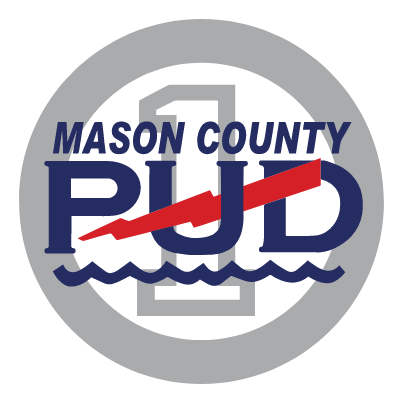March 2018-
“Spill” is quite literally the water that is spilled through massive gates that are raised at our federal hydropower dams. The spill is designed to help young salmon migrate quicker and easier downstream from the rivers to the ocean. Due to a ruling after two decades of litigation from fish advocates, Judge Simon from the Oregon U.S. District Court ruled for additional spills this year at eight large dams from April through mid-June. This will hit all of us Northwest ratepayers right in our wallets through our electric bills.
PUDs support fish and wildlife and we support habitat restoration and mitigations efforts. The federal hydro projects on the Columbia and Snake rivers already spill 30-40% of the water in those rivers, which together drain a land area as large as France. As ratepayers, we pay 25 to 30 cents per dollar on our power bills to pay for that along with other mitigations efforts. Here’s the rub: There is no proof that more spill will be better for fish. In fact, modeling by NOAA Fisheries shows that more spill will have little to no impact on fish survival. The pro-spill groups claim that their modeling tells a different story, but they have yet to provide data that would allow for a full and accurate comparison of results.
Spill costs money, and the ones who pay are families and businesses in the Pacific Northwest. You and I pay for these in our electric rates. Existing spill costs are already wrapped into the fish and wildlife costs on our bills. This additional spill is going to be a new charge to all of BPA’s customers this spring.
At PUD 1 we have gone back and forth about how to handle this increased cost. At our electric rate workshop and public hearing last September, we finally decided that it would be unfair to estimate PUD 1’s portion of the spill surcharge and build it into our rates. The actual amount of the surcharge is unknown at this point, and we will only incur the extra fee during the spring months that the spill occurs. We passed a resolution that stated the “spill surcharge” will be passed through as a separate line item on customer bills. This will allow the PUD to only recapture our costs for that surcharge and not impact our regular rates.
The PUD bills are one month behind so starting in May, you will likely see a separate “spill charge” line item on your bill for the April spill at the dams. This will continue through the June statement you will receive in July.
In my opinion and the opinion of Northwest RiverPartners, of whom PUD 1 is a member, this mandate is a massive misuse of people’s hard-earned dollars that will do little to nothing to help endangered salmon. One of the Northwest’s prime economic advantages has been its traditionally low-cost electricity. Repeated rate increases are eroding that competitive advantage and BPA’s historic position as one of the region’s lowest-cost energy providers.
More spill may pose harm to the very fish that spill proponents say they want to protect. Too much spill produces dangerous levels of gas in the river, which can give young fish “the bends” similar to divers who rise up from deep seas too quickly. Churning waters at the dams from spill also prevents returning adult salmon from ascending the dams’ ladders to reach their home rivers, where they spawn. BPA also estimates that the increased spill will result in another 840,000 tons of carbon added to Northwest skies, because carbon-emitting natural gas will likely replace the carbon-free hydropower that will be lost to spill. That’s a 1.7% increase in Northwest electricity sector emissions, at a time when state legislatures are grappling with proposals to reduce carbon emissions and our governor is pushing a carbon tax on our residents. When do the mandates and compounding rate impacts stop?
I think we can all agree that Northwest residents care deeply about our environment, our air quality, and our iconic salmon. However, without sufficient data to support Judge Simon’s spill ruling, as a commissioner and a ratepayer, I cannot support throwing money at a plan that likely isn’t going to make a measurable impact. Federal agencies are appealing the order to the Ninth Circuit Court of Appeals, along with Northwest RiverPartners, tribes, and the states of Idaho and Montana. We will keep you posted of the progress. In the meantime, you can visit nwriverpartners.org for more information.
Mike Sheetz, District 1 Commissioner
(Co-authorship credit to Terry Flores, Executive Director, Northwest RiverPartners)
